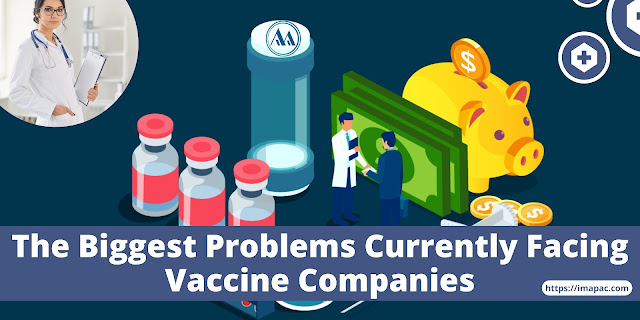To meet this demand, stakeholders had to alter their manufacturing procedures. They have had to spend a lot of money, renovate existing buildings, and set up complex supply networks to do this. In this Executive Insight, we discuss the major challenges to providing COVID-19 immunizations to the world, the solutions selected by stakeholders, and the long-term impact on the pharmaceutical industry.
- The unparalleled market for vaccine production Obstacles in the production
- Equipment and material shortages
- The complexity of the production process
- Capacity constraints
However, the threat of vaccine patriotism and the turmoil in international trade that arose from the crisis have driven manufacturers to reassess their supply chain strategy and relocate production closer to fulfillment centers with biopharmaceutical companies.
Notwithstanding the fact that the mechanics of any potential repatriation of distribution systems are still being worked out, pharmaceutical production has become more prominent on the agendas of various countries (such as which APIs are prioritized and time).
The crucial role CDMOs played in creating the COVID-19 vaccine only serves to emphasize how important they are to the industry. We predict that pharma and CDMO interaction will become more strategic, with agreements that are longer and more in-depth.
The pharmaceutical industries' willingness to work during the outbreak creates opportunities for continuous, more widespread cooperation in the future. Replicating such coordinated initiatives could boost the likelihood of success in fields with major unmet needs, such as infectious diseases (such as antibiotic resistance) and beyond.
The COVID-19 vaccine has been developed and produced thanks to pharmaceutical companies' concerted efforts, which have significantly accelerated and bolstered government pandemic responses, laid the groundwork for improved control of infectious illnesses, and advanced critical fields outside of infectious diseases, such as oncology. Future development with vaccine companies will be greatly facilitated by collaborations between pharmaceutical companies or drug industry with CDMOs and newly created production capacity.
Given how vaccinations and the immune system work, it is very possible that the illness will protect you less than the shot.
Think of the antibody in your immune system like keys, and the virus as a lock. If the keys fits in the lock, the lock is unlocked, and the virus is destroyed.
Your body doesn't really examine the lock that much anymore. It just throws a bunch of keys at it and see which one fits. The company will eventually find the one key that opens the lock, and will start mass-producing that key for vaccine manufacturers.
It doesn't need to fit precisely, though, in order to be useful.
It's fine if it wriggles and squeaks its way open of 99% of the locks before you recover.
The virus is continually changing, though. The lock you come across and the one that follows will differ in a number of ways. If your illness is sufficiently different from the previous one, your body must begin the healing process all over again when you become ill. This lock might not accept a key that just just fit the previous one.
Your body produces a key that final total the original lock after receiving a vaccination. That is how it was designed to be.
Hence, if a slightly different lock does materialize, your keys will probably certainly also work for it.
Being "virtually positive" does not equate to being "absolutely definite" because biology is an incredibly complex science. I've omitted a number of intricate details from this. This situation may occur in eight or nine of the ten diseases for which there are vaccinations, with Covid-19 possibly making up the tenth.
The vaccine will probably protect you more than the sickness will, though. There is also the fact that the vaccine does not have a 10% risk of necessitating hospitalization.



0 Comments